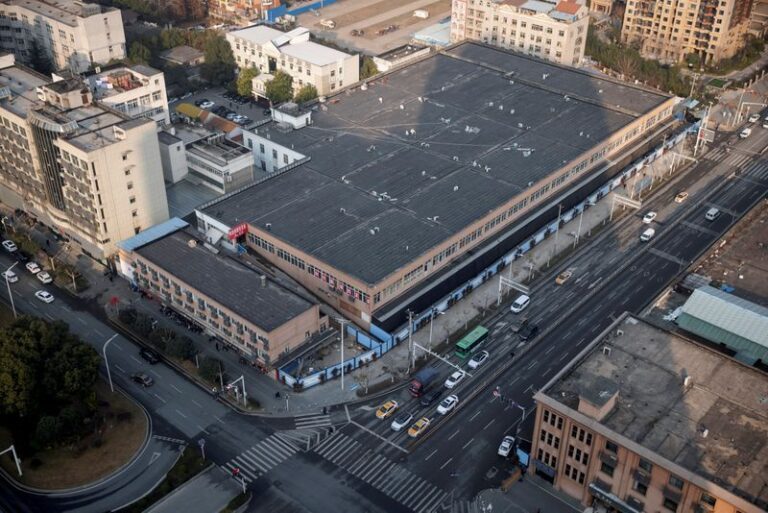
(Reuters) – A World Health Organization-led team investigating the origins of COVID-19 are to begin virtual meetings with their Chinese hosts from a hotel in China’s Wuhan, where the pandemic first emerged, on Friday.
Their arrival at the city in central China on Thursday was disrupted by the absence of two members who failed coronovirus antibody tests in Singapore.
“Team now undergoing the mandatory 14 days quarantine & being treated very well by our hosts. Work begins today, day 1, in teleconf. mtgs w/ China team,” tweeted team member Peter Daszak, a zoologist.
The driveway and parking lot of the boutique hotel where the team are staying was cordoned off with tape on Friday and security personel stood guard at the entrance.
The team’s arrival in Wuhan came as China is on alert over a resurgence of coronavirus cases in its northeast.
The United States, which has accused China of hiding the extent of its initial outbreak a year ago, has called for a “transparent” WHO-led investigation and criticised the terms of the visit, under which Chinese experts have done the first phase of research.
Dominic Dwyer, an Australian virologist on the team, said he and the other scientists were trying to keep the politics surrounding the trip aside.
“There’s always politics with this sort of scenario but one of the things that COVID-19 has shown us is if you have good science, you then inform the politics,” he said.
“You want to fill the scientific vaccuum with the answers so that people can make more informed and, therefore, presumably more sensible decisions.”
The WHO has said the two absent team members are being re-tested for antibodies. The team of 15 had all tested negative for the disease prior to leaving their home countries, and underwent further testing while in transit in Singapore.
Dwyer said the itinerary for the rest of the trip was still to be sorted out but he hoped to visit research institutes, hospitals and the market where the first human cases of the disease were detected in late 2019.
“Getting an understanding of how they (markets) work physically by seeing them is helpful because one’s trying to work out how viruses might have come into the market from outside…and spread within the market, or parts of the market, and then spread to the community,” he said.






